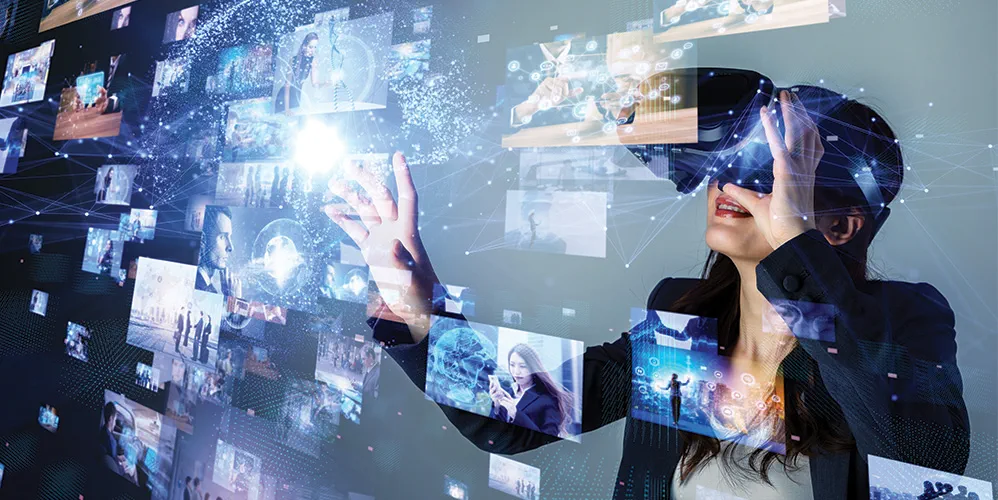Introduction: Artificial intelligence (AI) has emerged as a revolutionary force across numerous industries in the ever-changing technological landscape. One area where AI is making great progress is in filmmaking and cinematic production. This article investigates the revolutionary implications of AI ingenuity on the art and craft of filmmaking, looking at how this cutting-edge technology is transforming the industry.
Enhanced Creativity and Storytelling:
AI is proving to be a valuable ally to filmmakers in the creative process. With the ability to analyze vast amounts of data, AI algorithms can identify storytelling patterns, predict audience preferences, and even generate compelling storylines. This assists filmmakers in refining their narratives and creating content that resonates with diverse audiences.
Efficient Pre-production Planning:
Pre-production is a critical phase in filmmaking, involving meticulous planning and organization. AI technologies streamline this process by analyzing historical data, predicting potential challenges, and optimizing resource allocation. This results in more efficient planning, reducing costs and saving valuable time.
Advanced Visual Effects and CGI:
AI-driven technologies are elevating the quality of visual effects and computer-generated imagery (CGI) in films. Machine learning algorithms can seamlessly integrate CGI elements into live-action footage, creating stunning and realistic visuals. This not only enhances the overall cinematic experience but also allows filmmakers to bring their imaginative worlds to life with greater precision.
Automated Video Editing:
Traditional video editing can be a time-consuming task, but AI-powered tools are changing the game. These tools use algorithms to analyze footage, detect key moments, and automatically edit videos with minimal human intervention. This not only accelerates the post-production process but also ensures a more polished final product.
Personalized Audience Engagement:
AI enables filmmakers to tailor their content to specific audience preferences. By analyzing data on viewer behavior, AI algorithms can recommend personalized content, leading to a more engaging and immersive cinematic experience. This personalized approach enhances audience satisfaction and strengthens the connection between filmmakers and their viewers.
Facilitating Accessibility in Filmmaking:
AI is democratizing the filmmaking process by making it more accessible to aspiring creators. AI-powered tools are simplifying tasks such as scriptwriting, casting decisions, and even budgeting, allowing independent filmmakers to bring their visions to the screen with greater ease.
Challenges and Ethical Considerations:
Despite its numerous advantages, the integration of AI in filmmaking also raises ethical concerns. Issues related to data privacy, bias in algorithms, and the potential loss of human jobs are areas that need careful consideration as the industry embraces these technological advancements.
Conclusion:
The influence of AI ingenuity on film making and cinematic productions is undeniable. From enhancing creativity to improving efficiency in various aspects of production, AI is reshaping the industry in unprecedented ways. As filmmakers continue to embrace these technological advancements, the future promises a cinematic landscape where the marriage of human creativity and artificial intelligence results in unparalleled storytelling and visual experiences.
How is AI currently being used in the filmmaking industry?
AI is being employed in various capacities, such as enhancing creativity in storytelling, streamlining pre-production planning, improving visual effects and CGI, automating video editing processes, and facilitating personalized audience engagement.
What benefits does AI bring to filmmakers in terms of efficiency and cost-effectiveness?
AI technologies contribute to more efficient pre-production planning by analyzing data and optimizing resource allocation. Additionally, automated video editing tools save time in post-production, leading to cost savings and a more streamlined filmmaking process.
In what ways does AI contribute to the improvement of visual effects and CGI in films?
AI-driven technologies analyze data to seamlessly integrate CGI elements into live-action footage, resulting in stunning and realistic visuals. This capability allows filmmakers to create immersive and visually impressive cinematic experiences.
How can AI make filmmaking more accessible, especially for independent creators?
AI-powered tools simplify tasks like scriptwriting, casting decisions, and budgeting, making the filmmaking process more accessible to independent creators. This democratization of technology enables aspiring filmmakers to bring their visions to the screen with greater ease.
What ethical considerations and challenges are associated with the integration of AI in filmmaking?
The use of AI in filmmaking raises concerns about data privacy, bias in algorithms, and the potential impact on human jobs. Filmmakers and industry stakeholders need to address these ethical considerations to ensure responsible and equitable use of AI in the creative process.


